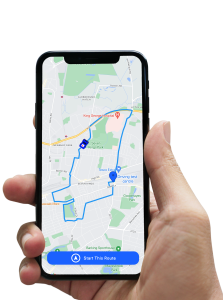The UK driving licence system has undergone some significant changes recently. Whether you’re a new driver, an experienced motorist, or someone who just needs a quick refresher, these updates could impact how you manage your driving licence. In this blog, we’ll guide you through the most important changes you need to know.
1. New Photocard Expiry Rule
What’s Changed?
One of the most noticeable changes is the new requirement to update your photocard driving licence every 10 years, regardless of whether your details have changed or not. Previously, many drivers didn’t need to renew their photocard unless there was a change in personal details, but now, all drivers must ensure their photocard remains up-to-date. This rule is designed to improve road safety and help prevent fraud.
Why Is It Important?
Failure to renew your photocard on time could result in fines or difficulties when using your licence for identification. It’s crucial to check the expiry date and renew in advance.
2. The New Driving Test Rules for Learners
What’s Changed?
Today, learners will notice a few tweaks in the driving test format, including stricter rules for independent driving and enhanced manoeuvre assessments. These changes aim to make the driving test more reflective of real-world driving scenarios, ensuring that new drivers are better equipped for life on the roads.
Why Is It Important?
Learners need to be prepared for the updated test, which could mean more comprehensive training is required to pass. Ensure your instructor is up to date with the latest guidelines.
3. Medical Requirements and Fitness to Drive
What’s Changed?
Drivers will now be required to undergo more frequent medical checks, especially for older drivers or those with specific medical conditions. If you have a condition that affects your ability to drive, such as epilepsy, diabetes, or vision problems, the rules around self-declaration and medical assessments have become stricter.
Why Is It Important?
If you’re in a situation where you need to declare a medical condition, ensure you’re doing so on time. Failing to meet medical requirements could result in fines or even the suspension of your driving licence.
Make the Most of Your UK Driving Licence with RouteBuddy
Stay ahead of the changes to your UK driving licence with RouteBuddy. Our app offers interactive driving test routes, real-time navigation, and customisable features to help you prepare effectively. Boost your confidence and increase your chances of success – download RouteBuddy today!
Start Practising for Your Test Today
Check Now
4. The Introduction of Digital Driving Licences
What’s Changed?
The DVLA is introducing digital driving licences, making it easier to manage your licence through the app or website. This will allow drivers to access and update their information instantly, streamlining the process of renewing or replacing lost documents.
Why Is It Important?
This is a step toward modernising the driving system in the UK, and it’s essential to keep an eye on these developments. While the paper licence will still exist, having access to your digital version will provide greater convenience.
5. Enhanced Penalties for Driving Offences
What’s Changed?
Another important change involves the penalties for certain driving offences. For example, speeding fines have increased for serious offences, and new penalty points systems have been introduced for offences such as using a mobile phone while driving.
Why Is It Important?
It’s vital to stay aware of the updated penalties to avoid hefty fines and points on your licence. Regularly reviewing the penalties associated with common driving offences can help prevent accidental violations.
Conclusion
These changes to your UK driving licence for this year are aimed at improving road safety, modernising the driving experience, and ensuring that drivers are compliant with new standards. Make sure you are fully informed about the new rules and take the necessary steps to update your licence, renew documents on time, and remain compliant with the new guidelines.
FAQ Section:
Q: How often do I need to renew my UK driving licence?
A: You must renew your photocard driving licence every 10 years, even if your personal details have not changed.
Q: What happens if I don’t update my driving licence?
A: Failing to update your licence on time can lead to fines or difficulties using your licence for identification purposes.
Q: Can I update my UK driving licence online?
A: Yes, you can update your driving licence online through the DVLA website or app.
